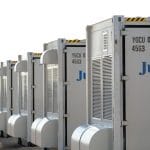Verra Launches Pilot to Fast Track Project Review Requests as Market Pressures Intensify

• Verra introduces an optional prioritization queue for verification approval requests, offering earlier review starts without altering technical review standards.
• The fee based system aims to expand reviewer capacity and shave down overall processing times during a period of high demand from project developers and offtakers.
• Governance implications span transparency, market integrity, and timing risks for credit issuances tied to commercial deadlines.
A New Mechanism for Managing Review Bottlenecks
Verra has begun piloting a structured prioritization process that allows carbon project developers to opt into a fast-track queue for verification approval requests, responding to mounting pressure from proponents seeking more predictable timelines for issuance. The option is available immediately, offering earlier initiation of review work while preserving existing technical rigor.
The organization said the pilot reflects rising demand within the voluntary carbon market for clarity around processing times, particularly as developers navigate deadlines linked to offtake agreements, investment milestones, and credit delivery schedules. The new pathway allows proponents to pay a fee to enter a priority queue. Once reviews begin, however, every request undergoes the same technical procedures, risk assessments, and service-level agreements (SLAs) as standard submissions.
Justin Wheler, Verra’s chief program management officer, described the change as a practical way to maintain integrity while meeting stakeholder need. “To use the analogy of air travel, this prioritization fee process offers project proponents the option to join the fast-track lane. Once in security (the equivalent of a project undergoing technical review), the timelines remain the same to maintain the quality of Verra’s process. However, having entered the priority queue can offer substantial time savings.”
How the Prioritization Track Works
Under the pilot, requests submitted with prioritization are placed in a dedicated queue. Reviewers initiate their assessments earlier than they would under standard placement, but all subsequent steps follow the same methodology and SLA durations defined by project risk and complexity. Verra noted that the pilot does not change requirements for any project that does not opt in; those reviews continue to flow through normal timelines.
The fee is designed to serve a dual purpose. First, it signals demand, allowing Verra to allocate staff to the areas under the greatest time pressure. Second, the revenue generated will help expand overall review capacity, which the organization says will ultimately shorten wait times for all users of its system.
As a nonprofit, Verra emphasized that resource optimization remains a core part of its operating model. The new structure formalizes what had previously been ad hoc efforts to handle urgent requests, offering a more transparent and predictable path while protecting the quality thresholds expected by buyers, investors, and standard-setters.
Why Market Timing Matters
The move arrives at a pivotal moment for the voluntary carbon market. High-integrity credit issuance has become tightly coupled to commercial planning across corporate climate strategies, nature-based project finance, and emerging compliance-adjacent mechanisms. Delays of even a few weeks can reverberate across balance sheets, delivery contracts, and investor reporting.
Developers facing year-end credit deliveries or renewal timelines for emissions-reduction purchase agreements increasingly seek process certainty. While Verra has updated SLAs in recent months to address these concerns, demand has outpaced available reviewer bandwidth. The prioritization queue gives proponents with urgent deadlines a structured option to accelerate the start of their review without changing how their projects are assessed.
Crucially, Verra stressed that the integrity of the underlying system remains intact. Technical review timing, documentation standards, and decision pathways are identical across both standard and priority tracks. The distinction lies solely in when the review begins, not how it is performed.
RELATED ARTICLE: Verra Launches Digital Soil Mapping Tool to Boost Agricultural Carbon Projects
Stakeholder Tensions and Governance Implications
For policymakers, investors, and C-suite sustainability leaders, the pilot raises broader governance considerations. Voluntary carbon markets are under intense scrutiny as reforms move through bodies such as the Integrity Council for the Voluntary Carbon Market (ICVCM) and as national regulators consider how crediting systems interface with Article 6 mechanisms. Any shift in review structures must walk a fine line between efficiency and perception of fairness.
Verra maintained that the pilot will not disadvantage those who choose not to pay for prioritization. Standard reviews will proceed under established SLAs. The organization argues that increased resourcing from the fee will improve system-level performance, reducing backlogs that have challenged proponents in recent years.
The transparency embedded in this pilot may also serve as a governance signal: structured queues, published SLAs, and clear cost rationales offer greater predictability than informal prioritization requests. For institutional buyers and financiers that rely on credit volumes hitting the market on time, this level of disclosure matters.
What Executives Should Watch
The pilot provides an early view of how large standards bodies may adapt to the pressures of a maturing carbon market. Efficiency gains, if realized, could strengthen confidence among investors evaluating long-term nature and carbon-removal pipelines. Corporates dependent on credits to meet interim climate targets will also monitor whether the priority queue translates into tangible reductions in issuance delays.
The initiative could further influence how other registries structure their review mechanisms. Growing demand for high-integrity credits, along with tighter expectations from auditors and the ICVCM, is pushing standards toward greater procedural clarity. If Verra’s pilot succeeds, fast-track queues funded through capacity-expansion fees may become a wider trend.
A Market Under Review
Verra’s pilot is ultimately an exercise in balancing market responsiveness with review integrity. The organization framed the move as a practical adjustment rather than a shift in standards, emphasizing that quality controls remain untouched. Yet the timing is significant. As climate finance scales and scrutiny heightens, the speed at which verification bodies can process legitimate projects has become part of the governance equation.
Follow ESG News on LinkedIn









